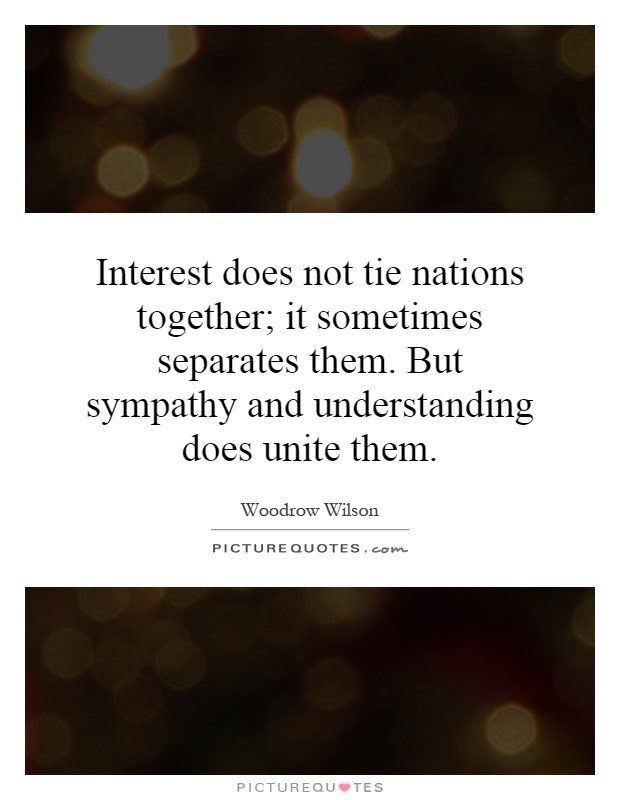Interest does not tie nations together; it sometimes separates them. But sympathy and understanding does unite them

Interest does not tie nations together; it sometimes separates them. But sympathy and understanding does unite them
Woodrow Wilson, the 28th President of the United States, was a firm believer in the power of sympathy and understanding to unite nations. He understood that while interest may sometimes drive nations apart, it is ultimately empathy and mutual understanding that can bring them together.Wilson's approach to international relations was shaped by his belief in the importance of diplomacy and cooperation. He recognized that nations often act in their own self-interest, pursuing policies that may conflict with the interests of other countries. However, he also understood that true unity and cooperation can only be achieved through a shared sense of empathy and understanding.
One of Wilson's most famous contributions to international relations was his Fourteen Points, a set of principles outlining his vision for a post-World War I world. In these points, Wilson emphasized the importance of self-determination, open diplomacy, and the establishment of a League of Nations to promote peace and cooperation among nations. These principles were rooted in Wilson's belief that true unity and understanding can only be achieved through mutual respect and cooperation.
Wilson's belief in the power of sympathy and understanding to unite nations was put to the test during his presidency, particularly during World War I. Despite the challenges and conflicts that arose during this time, Wilson remained committed to his vision of a world built on cooperation and understanding. His efforts to promote peace and diplomacy ultimately laid the groundwork for the establishment of the League of Nations, a precursor to the United Nations.












 Friendship Quotes
Friendship Quotes Love Quotes
Love Quotes Life Quotes
Life Quotes Funny Quotes
Funny Quotes Motivational Quotes
Motivational Quotes Inspirational Quotes
Inspirational Quotes